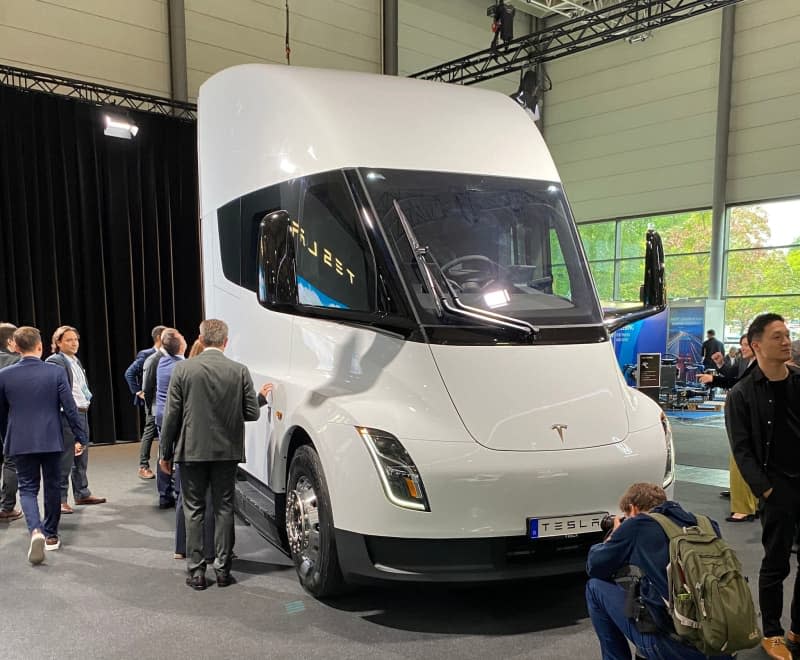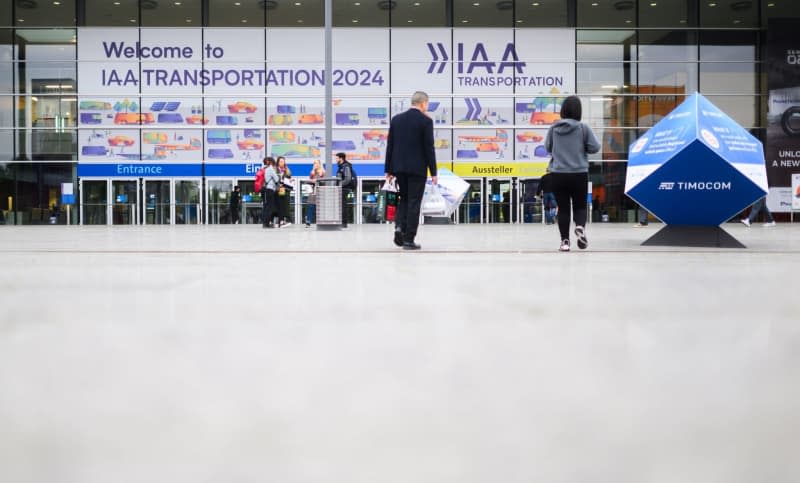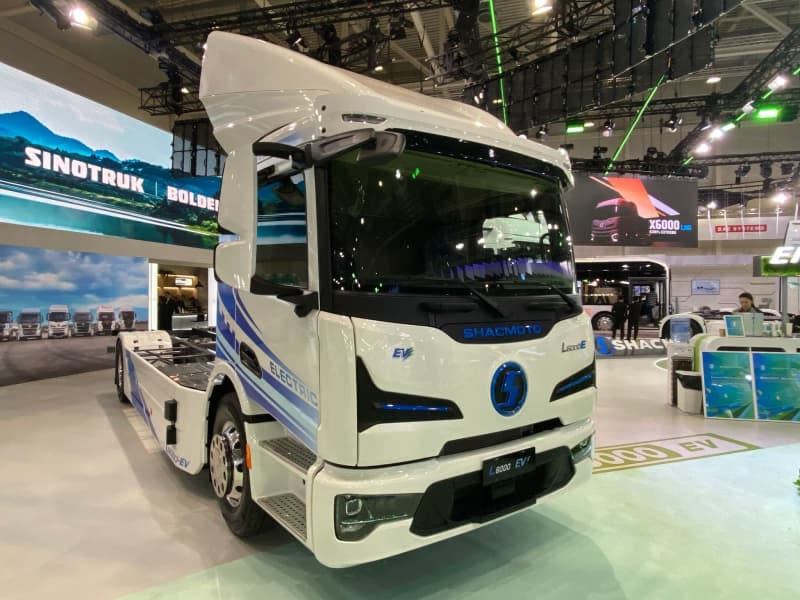The classic diesel engine seems to have had its day – at least going by the displays at Germany’s IAA Transportation trade fair for commercial vehicles.
Electric lorries and vans dominate almost every stand at the Hanover event with manufacturers showcasing their latest battery models and inviting visitors to test drive them.
Tesla is also fielding its futuristic electric truck in Germany for the first time at the biannual get-together although the sleek tractor unit does not yet have road approval for Europe.
A Tesla official said its engineers were working hard on plans to offer the lorry in Europe soon.
Volvo, Scania, DAF, MAN and Mercedes-Benz are all showing green trucks, either with electric or in some case hydrogen fuel-cell drivetrains such as the Merry Haul from Chinese maker King Long. The makers say this cool-looking aerodynamic unit can pull up to 49 tons and has a driving range of more than 1,000 kilometres,
And it’s no longer just prototypes and studies that are on show. “We are now ready to deliver,” said Scania boss Christian Levin. “For us, 2024 is now clearly all about realisation,” agreed Daimler Truck chief executive Martin Daum.
According to a study by auditing firm PwC, one in five new trucks worldwide could be purely electric as early as 2030, and by 2040 the share could be 90%.
While many car drivers are hesitant to switch to an electron-sipping mode of transport, electric trucks will soon be cheaper to run for haulage companies when compared with diesel, according to the PwC experts.
This makes the switch worthwhile. In many cases, an electric lorry can already keep up with a diesel drive in terms of the total costs of purchase and operation, said Daimler Truck boss Daum.
So far, sales figures are still modest. In the first half of the year, only 1.9% of newly registered trucks in Europe were electric, according to the European manufacturers’ association Acea.
The right range of zero-emission trucks and buses is now available, says Levin, who also heads the VW truck holding company Traton. “But sales are still far too low.” He said there was simply a lack of incentives for customers. “I would like to see politicians take a clear path towards cost parity between electric and diesel drives.”
The poorly developed charging network is a major bugbear and in many countries the electricity grid is too feeble to support heavy charging for trucks which can take on up to 1,400 kw of power in a short time.
Daum says this is the major bottleneck. Due to the extremely long planning processes for power grids, action must be taken quickly. “The clock is ticking.”
According to the PwC study, billions would have to be invested to create a nationwide charging network. By 2035, the public investment requirement in Europe would be €6.1 billion ($6.8 billion). On top of this, another €28.6 billion ($31.9 billion) would have to be spent by the companies themselves on their own charging stations.
This presents the industry with a double challenge. Along with fettling new electric lorries, manufacturers must also continue to invest in their diesel vehicles even if the focus is clearly on electric, said MAN CEO Alexander Vlaskamp.
“Diesel engines will continue to play an important role throughout the entire transformation until they are completely replaced.” said the MAN executive. Fuel cells will also play a role, but Vlaskamp only sees them as a niche solution for specialised applications.
Unlike the VW passenger car brand, MAN therefore builds all drives on one assembly line. “This allows us to react flexibly to the shift in demand towards electric trucks,” explained Vlaskamp, whose brand also belongs to Traton.
Volkswagen, on the other hand, has already completely converted entire plants to electric and these are now under-utilized due to weak private demand. Factory closures and compulsory redundancies at the core Volkswagen brand are no longer being ruled out.
The challenge is also hitting lorry manufacturers at the wrong time. In August, commercial vehicle sales in Europe slumped by 37%. “There is a great deal of restraint in Germany,” said Traton boss Levin.
According to the organisers, more than 1,650 exhibitors from 41 countries are taking part in the IAA Transportation which runs until Sunday.













